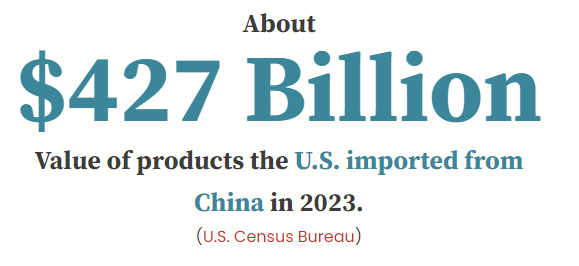The Office of the United States Trade Representative has again put on hold a planned initiative from President Joe Biden’s administration that calls for increasing import tariffs on about $18 billion worth of products imported from China, including materials like steel that can potentially impact the promotional products industry.
Announced this spring, the tariffs were initially in line to take effect on Aug. 1. However, in July, the USTR pushed that date back, saying that a final determination on how to proceed with the proposed levies would be made in August, with implementation coming in September.
The process of reviewing approximately 1,100 public comments submitted regarding the tariffs required extra time, USTR said in July. Still, the trade leader’s office said the review would be done and a determination made by Aug. 31. It wasn’t; instead, another delay was announced at August’s end.
“USTR continues to work to finalize the determination, and we intend to make it public in the coming days,” the trade representative’s office said in an Aug. 30 statement.

Under Biden’s proposal, tariffs would rise to 25% on steel, aluminum, lithium-ion batteries, ship-to-shore cranes and syringes; 50% on semiconductors and solar cells; and 100% on EVs. Levies were initially implemented under former President Donald Trump.
Just what a tariff hike from the current 7.5% to 25% on steel and aluminum might look like in practice is of concern for promo companies.
Such materials are used in products that the industry sells, including reusable drinkware, writing instruments and housewares. Increased production/importing costs could potentially fuel the need for price increases on affected promo products, some executives have said. Still, others think the impacts will be fairly minimal and that the industry will adapt without major consequence for end-buyers.

Biden has said the tariffs are intended to protect American jobs and businesses against China’s alleged unfair trade practices, which the president’s administration has said include saturating global markets “with artificially low-priced exports.”
Tariffs come with possible political implications. Some analysts say a softening of the tariffs would show Biden/Democratic presidential candidate and current Vice President Kamala Harris are weak on China. Meanwhile, others point out that industry groups say higher tariffs will hurt domestic companies and contribute to inflation.
Trump’s implementation of tariffs on hundreds of billions of dollars’ worth of imported China-made products contributed to price increases on items sold in the North American promotional products industry.
The levies also propelled what were then already-underway initiatives by promo suppliers and other industry importers to move some production out of China, though that nation remains dominant in industry supply lines for many goods, including electronics. Indeed, the U.S./Canadian promo industry imports the majority of items it sells from China, and Counselor’s 2024 State of the Industry report indicates that’s not likely to change.



